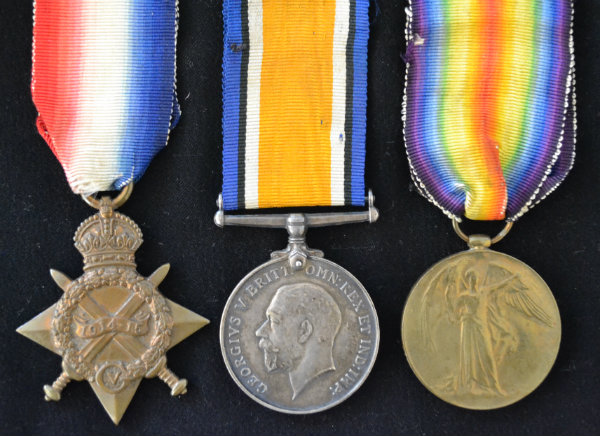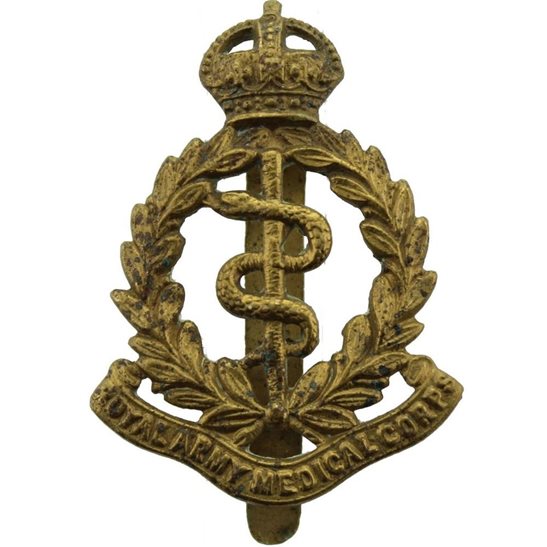Personal Details
Born: 24 July 1889 and baptised 11 September at St Alkmund’s church the same year.
Family: Youngest of four children born to John and Mary Cooper. In the 1911 census Albert was listed as married. Confusingly, army records for 1919 give his marital status as both widower and single. However, in the summer of that same year he married Florence Davis at Nantwich. Together they had seven children William, Alfred, Doreen Alice, Phyllis, Ronald, Reginald, and Henry.
Residence: In 1889 the family lived in Highgate, Whitchurch, Shropshire. Three years later they had moved to Audley, Newcastle-under-Lyme, Staffordshire. By 1901 Albert was living in Bark Hill, Whitchurch with his sister, his mother and her new husband George Wooluck. Ten years later he was living in Verdala Barracks, Malta. In 1919 his address was given as 9 Castle Hill, Whitchurch Shropshire but two years later he had moved to Lockett Street, Crewe, Cheshire. At the time of the 1939 Register Albert, Florence and their family were residing in Broad Street, Crewe, Cheshire.
Employment: The 1911 census listed Albert as a corporal in the King’s Shropshire Light Infantry. In 1939 he was working as a general labourer and also an ARP warden.
Died: In 1955 in Crewe, Cheshire.
Military Details
Regiment: Royal Army Medical Corps (previously King’s Shropshire Light Infantry, Royal Welsh Fusiliers and Rifle Brigade)
Rank: Private (previously Corporal)
Service Number: 13131 (previously 9309, 62070 and 6723)
Date of Enlistment: 1 January 1910
Date of Discharge: 23 July 1919
Reason for Discharge: Not known
Other Information: Received a military pension due to dyspepsia and defective vision.
Albert was awarded the Campaign Medals (British War Medal, Victory Medal and 1914/15 Star).

The 1914 Star (also known as 'Pip') was authorised under Special Army Order no. 350 in November 1917 and by an Admiralty Fleet Order in 1918, for award to officers and men of the British and Indian Expeditionary Forces who served in France or Belgium between 5 August and midnight of 22–23 November 1914. The former date is the day after Britain's declaration of war against the Central Powers, and the closing date marks the end of the First Battle of Ypres.
The 1914–15 Star (also known as 'Pip') was instituted in December 1918 and was awarded to officers and men of British and Imperial forces who served against the Central European Powers in any theatre of the Great War between 5 August 1914 and 31 December 1915. The period of eligibility was prior to the introduction of the Military Service Act 1916, which instituted conscription in Britain.
The British War Medal (also known as 'Squeak') was a silver or bronze medal awarded to officers and men of the British and Imperial Forces who either entered a theatre of war or entered service overseas between 5th August 1914 and 11th November 1918 inclusive. This was later extended to services in Russia, Siberia and some other areas in 1919 and 1920. Approximately 6.5 million British War Medals were issued. Approximately 6.4 million of these were the silver versions of this medal. Around 110,000 of a bronze version were issued mainly to Chinese, Maltese and Indian Labour Corps. The front (obv or obverse) of the medal depicts the head of George V. The recipient's service number, rank, name and unit was impressed on the rim.
The Allied Victory Medal (also known as 'Wilfred') was issued by each of the allies. It was decided that each of the allies should each issue their own bronze victory medal with a similar design, similar equivalent wording and identical ribbon. The British medal was designed by W. McMillan. The front depicts a winged classical figure representing victory. Approximately 5.7 million victory medals were issued. Interestingly, eligibility for this medal was more restrictive and not everyone who received the British War Medal ('Squeak') also received the Victory Medal ('Wilfred'). However, in general, all recipients of 'Wilfred' also received 'Squeak' and all recipients of The 1914 Star or The 1914/1915 Star (also known as 'Pip') also received both 'Squeak' and 'Wilfred'. The recipient's service number, rank, name and unit was impressed on the rim.

